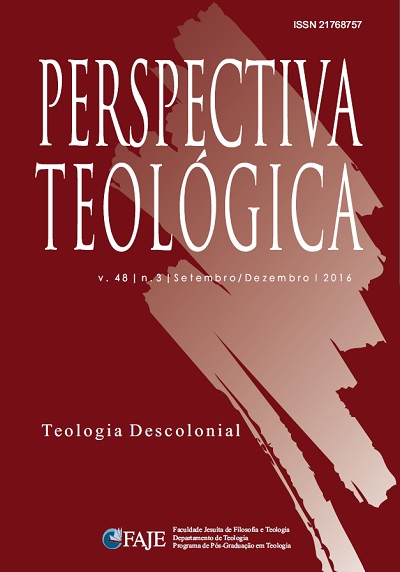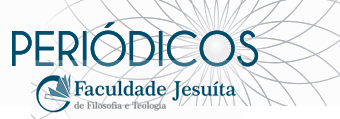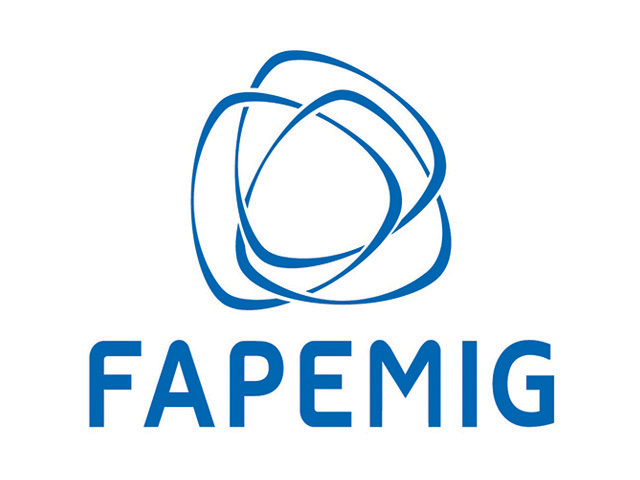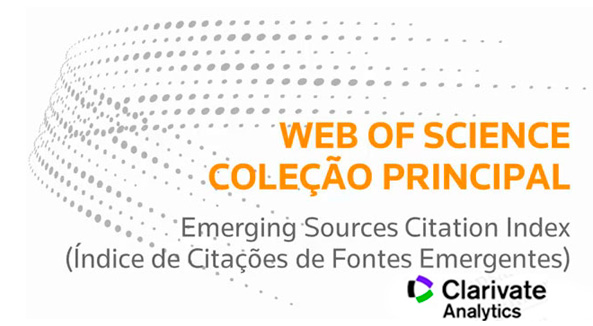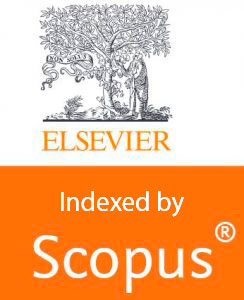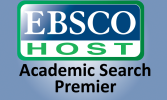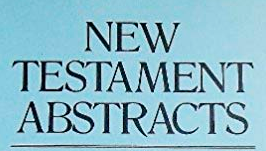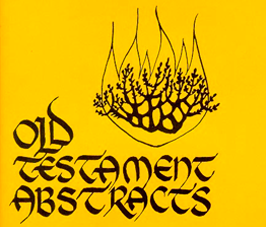PENSAMENTO DECOLONIAL, TEOLOGIAS PÓS-COLONIAIS E TEOLOGIA DA LIBERTAÇÃO
DOI:
https://doi.org/10.20911/21768757v48n3p491/2016Palavras-chave:
Teologia da Libertação. Libertação. Pensamento Decolonial. Teologia Pós-colonial. Teologia da Libertação Decolonial / Liberation Theology. Liberation. Decolonial Thought. Postcolonial Theology. Libertation Decolonial TheologyResumo
RESUMO: A Teologia da Libertação – TdL nasceu num contexto de opressão, buscando ser voz profética e produzindo ação transformadora, como resposta à indignação ética diante da opressão de milhões de latino-americanos. A TdL, a partir da renovação presente na Ação Católica Especializada e seus militantes (1950-1960), alimentada pelo Concílio Vaticano II (1962-1965) e a corajosa mudança iniciada por Medellín (1968), enfrentou o desafio de ser uma teologia “fonte”, recuperando a memória dos pais da Igreja, colhendo os frutos da renovação conduzida pela Nouvelle Théologie (1935-1960), e deixando de ser uma teologia “reflexo” (VAZ). Ganhou o mundo, com os novos sujeitos e os desafios da diversidade. E o espírito que esteve sempre presente na TdL foi e continua a ser de uma teologia que luta contra toda forma de opressão, de colonialismo, inclusive da própria teologia, vigilante sobre a libertação dela própria, como alertava Juan Luis Segundo (1978). Refletida já há algumas décadas, está cada vez mais em pauta a teoria decolonial. O que ela significa, qual sua genealogia e suas ideias? E que visão crítica ela traz para a reflexão teológica? Emergem também hoje as Teologias pós-coloniais. Que críticas elas fazem à TdL? Este artigo, a partir de pesquisa bibliográfica, objetiva refletir sobre o pensamento decolonial, sobre esse pensamento e a TdL, as críticas da Teologia Pós-colonial à TdL, as reações, implicações e perspectivas teológicas dessas concepções para a teologia latino-americana.
ABSTRACT: Liberation Theology – LT was born in a context of oppression, with the goal of being a prophetic voice and producing transformative actions, as a response to the ethical indignation caused by the oppression of millions of Latin Americans. The LT, from the renovation present in the Specialized Catholic Action and its members (1950-1960), fed by the Second Vatican Council (1962-1965) and the brave change initiated by Medellín (1968), faced the challenge of being a “source” theology, recovering the memory of the fathers of the Church, reaping the fruits of the renewal brought on by the Nouvelle Théologie (1935-1960), and ceasing to be a theology of “reflection” (VAZ). It gained the world, with new subjects and the challenges of diversity. And the spirit that has always been present in the LT was and always will be one of a theology that fights against all forms of oppression, of colonialism, including the one from theology itself, always watching its own liberation, as was warned by Juan Luis Segundo (1978). Having been thought of for a few decades already, the decolonial theory is currently more studied than ever. In this regard, the following questions arise: What does it mean? What their genealogies and ideas are about? What sort of criticism does it pose to theological reflection? Currently Postcolonial Theologies emerge. What criticism do they pose to Liberation Theology? From bibliographic research, this article aims to reflect on the decolonial thought, on the relationship between that thought and liberation theology, on the criticism of Postcolonial Theology to liberation theology, as well as the reactions, implications and theological perspectives of these concepts to the Latin American theology.
Downloads
Downloads
Publicado
Como Citar
Edição
Seção
Licença
Após a aprovação do texto submetido, os autores deverão encaminhar uma carta de direitos autorais assinada, cujo modelo se encontra na guia "Declarações" no topo do site da revista.

